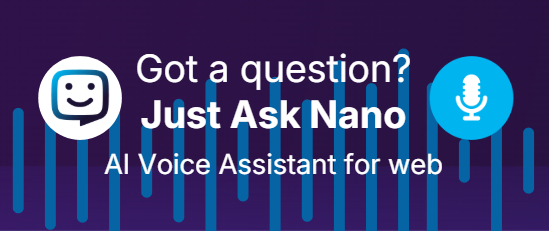_thumbnail_1920x1080.jpg)
In the wake of the consultation on Awaab's Law and heightened scrutiny on social housing conditions, housing associations across the UK find themselves under increasing pressure to demonstrate how they can respond swiftly to a range of tenant concerns - from damp and mould, to reports of antisocial behaviour.
But what if you could move beyond passive reporting and uncover potential problems before they become critical?
The answer might lie in a technology you already have, or have been considering - your customer service AI Assistant.
The Current Limitations of Reactive Approaches
When it comes to reporting problems many housing associations still rely on manual online forms. While this allows residents to flag issues, it puts the onus on them to recognise and disclose concerns. As one industry expert noted in The Big Issue, "Housing operates on complaints... That's why we see a lot of people suffering in silence."
This reactive approach makes it difficult to get ahead of emerging issues, especially for vulnerable tenants who may hesitate to report antisocial behaviour due to fears of retaliation or stigma. And with the strict response times likely to be mandated by Awaab's Law, housing providers need to consider ways in which to effectively prioritise urgent cases.
Proactive AI Assistants in Action
But what if your AI assistant could take a more dynamic,proactive approach? Rather than passively waiting for forms to be submitted, an AI-powered assistant could engage with tenants more directly, asking targeted questions to uncover potential issues.
For example, the assistant could inquire about health conditions that might be exacerbated by damp, or gently prompt residents to share any concerns about antisocial behaviour in their neighbourhood. This contextual awareness could trigger an urgent review, allowing you to address problems before they spiral out of control.
Collating Insights, Driving Action
As the AI Assistant gathers this information, it can seamlessly feed the data into your CRM system, giving your maintenance, inspection and case management teams a comprehensive view of emerging risks. With this more proactive approach, you can:
- Identify vulnerable tenants who may need additional support
- Prioritise properties for inspection based on indicators of damp, mould, or antisocial behaviour
- Initiate outreach campaigns to offer guidance and schedule preventative maintenance
- Respond quickly and effectively to reported incidents of antisocial behaviour
This strategy represents a significant shift from the "complaint-based" model described in The Big Issue. By taking a more proactive stance, you show your commitment to tenant wellbeing and demonstrate compliance with evolving regulations.
Empowering Your Team
Of course, technology alone is not a silver bullet. Your customer service representatives, maintenance staff, and case managers all play a crucial role in turning AI-driven insights into tangible results. By training your team to work in tandem with the AI assistant, you can empower them to:
- Respond empathetically to tenant concerns flagged by the AI
- Collaborate with the assistant to gather additional context
- Leverage the AI Assistant's recommendations to inform their decision-making
- Provide feedback to refine the AI's capabilities over time
A Brighter Future for Social Housing
The housing sector is at a pivotal moment, with rising expectations and new regulations placing significant demands on providers. By embracing proactive, AI-powered approaches to identifying and addressing a range of tenant concerns, you can not only meet these challenges but also transform the overall customer experience.
Rather than waiting for problems to surface, you can get ahead of issues, supporting your most vulnerable residents and demonstrating your commitment to creating healthy, safe, and inclusive communities. As one expert noted in Inside Housing, "Being proactive, engaging our tenants and implementing a data-led strategy from the outset has turned the dial on our response to damp and mould."
Taking the First Step
For customer service and experience leaders in Housing Associations, the time to act is now.
Here are some key steps to consider:
- Assess your existing AI Assistant's capabilities and identify opportunities to leverage it beyond FAQs and repairs, incorporating new compliance related topics such as damp and mould and antisocial behaviour.
- Develop protocols for contextual tenant engagement, focusing on early identification of risk factors and potential issues.
- Integrate your AI-generated insights with your CRM, maintenance management, and case management systems.
- Train your customer service, maintenance, and case management teams to work collaboratively with the AI assistant.
- Establish metrics to measure the impact of your proactive interventions and continuously refine your approach.
By empowering your AI Assistant to take a more proactive role, you can transform your approach to a wide range of tenant concerns, creating a brighter future for social housing and the communities you serve.
For more information about our solutions for Housing or to speak with one of our team, please get in touch via email at info@converse360.co.uk or give us a call on 0333 6000 360
Sources:
The Big Issue: How AI holds the key to tackling deadly damp and mould insocial housing
Inside Housing: Why a Proactive Policy is Paramount to Tackling Damp and Mould







